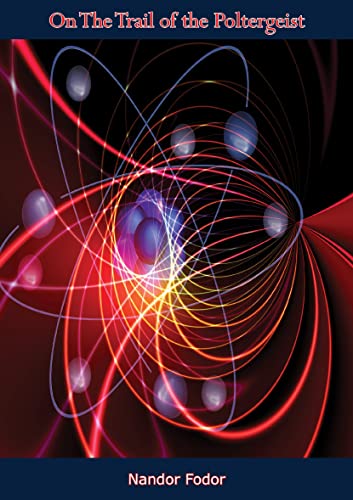Nandor Fodor, a prominent figure in the world of parapsychology and psychic research, has left an indelible mark on the exploration of the supernatural. Born on October 13, 1895, in Hungary, Fodor's journey into the realm of the unexplained was characterized by meticulous research, insightful writings, and a relentless pursuit of understanding the mysteries of the human mind. This blog delves into the life, contributions, and legacy of Nandor Fodor, shedding light on his groundbreaking work that shaped the field of paranormal investigation.
Early Life and Education
Nandor Fodor's early life was marked by intellectual curiosity and a passion for the unexplained. He pursued his studies at the University of Budapest, where he delved into psychology and literature. Fodor's fascination with the human mind and the inexplicable occurrences that seemed to transcend conventional understanding set the stage for his future endeavors.
Fodor's Path into Parapsychology
Fodor's interest in the paranormal led him to London, where he eventually became a naturalized British citizen. It was in this vibrant hub of intellectual exploration that Fodor's career took a pivotal turn. In the 1930s, he joined the International Institute for Psychical Research (IIPR), an organization dedicated to the scientific study of paranormal phenomena. Fodor's keen analytical skills and dedication quickly earned him recognition within the institute.
Meticulous Research and Contributions
Nandor Fodor was a firm advocate for scientific rigor in the field of parapsychology. He believed that paranormal phenomena should be investigated with the same level of precision and skepticism as any other scientific inquiry. Fodor's commitment to thorough research is evident in his groundbreaking work, "Encyclopedia of Psychic Science," which remains a seminal reference for researchers and enthusiasts alike.
One of Fodor's most notable cases was his investigation of the famous "Tulpa" phenomenon. In 1938, he meticulously examined the case of "Rosalie," a purported thought-form entity created through intense concentration and visualization. Fodor's comprehensive analysis of the case provided valuable insights into the power of the human mind to shape reality, even in ways that challenge conventional understanding.
Fodor's exploration of mediumship and communication with the spirit world also left an enduring impact. His investigations into mediums like Stella C. and Helen Duncan aimed to decipher the authenticity of their abilities. Fodor's approach blended critical examination with an open-minded willingness to explore the unknown.
Nandor's book On The Trail Of The Poltergeist is available:
here
Legacy and Lasting Influence
Nandor Fodor's dedication to bridging the gap between science and the supernatural laid the groundwork for the modern field of parapsychology. His emphasis on evidence-based inquiry and his prolific writings continue to inspire researchers, skeptics, and believers alike. Fodor's legacy lives on through institutions like the Parapsychological Association, which continues to promote the study of paranormal phenomena with the same intellectual rigor he championed.
Nandor Fodor's life and work exemplify the power of curiosity, critical thinking, and relentless exploration. His contributions to parapsychology have not only shaped the way we approach the unexplained but have also enriched our understanding of the human mind's potential. Fodor's legacy invites us to continue asking questions, pushing boundaries, and seeking deeper insights into the mysteries that still captivate our collective imagination.
You can listen to the podcast discussing some of the work of Nandor Fodor: here
This page contains affiliate links. If you click an affiliate link and make a purchase, Haunted History Chronicles will earn a small commission for the referral at no cost to you. I am a participant in the Amazon Services LLC Associates Program, an affiliate advertising program designed to provide a means for us to earn fees by linking to Amazon.com and affiliated sites.




















